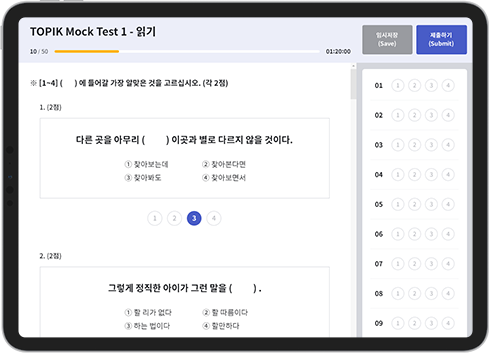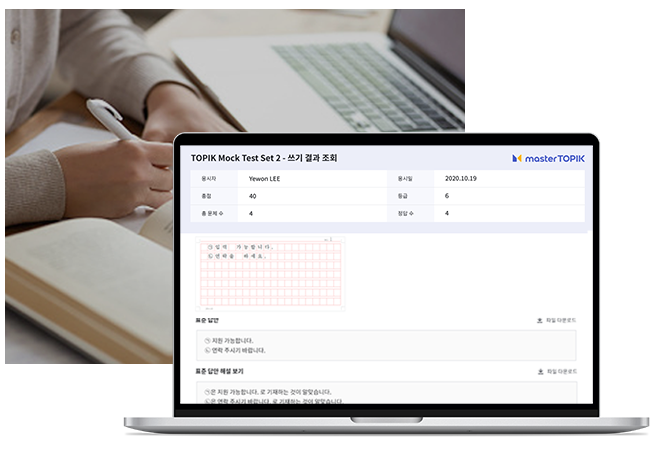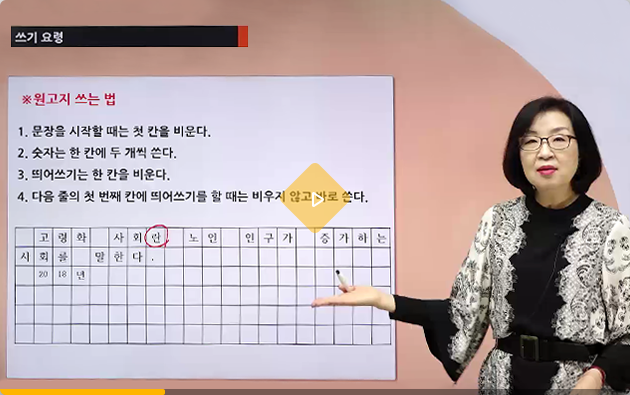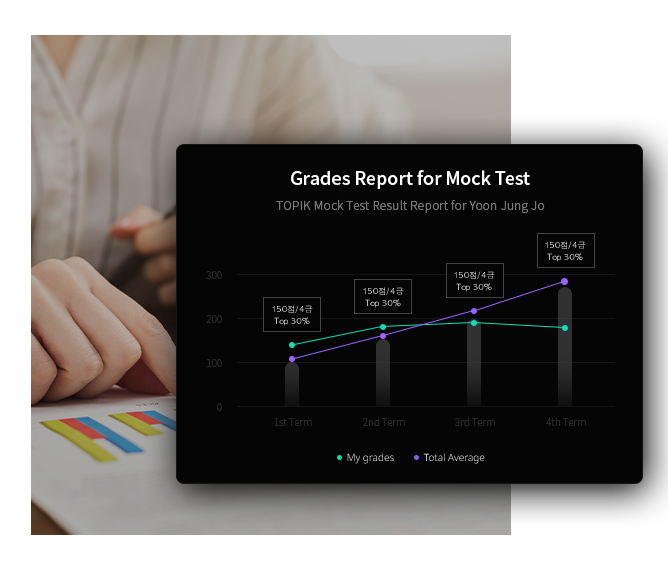What is TOPIK?
TOPIK, the abbreviation of Test Of Proficiency in Korean, is a written test designed to evaluate the Korean language proficiency of non-native speakers.
This test measures the sufficiency in the understanding of reading, writing and listening in the Korean language.
TOPIK has three different levels, namely Beginner, Intermediate and Advanced . Moreover every level has two grades.
Benefits of TOPIK
The main reason why people take the TOPIK is for them to get an official record of their proficiency in Korean. Many do it to evaluate their future career prospects, or to get better educational opportunities in Korea. The South Korean government provides scholarship opportunities to deserving international students to study in Korea. It has been seen that students who have up to TOPIK level 3 have a better chance in getting the scholarship and have an edge over the students. Students who are willing to apply for scholarships for masters and PhD are required to attain TOPIK level 4 by some Korean universities. Nevertheless attaining a level in TOPIK would make your selection much easier. For such scholarships, TOPIK Certification is a prerequisite.
Also, it is also vital if you’re planning to attain permanent residency or a marriage visa in Korea. In short, this Certification confirms your proficiency in Korean language which can be used for various purposes apart from studies also.
TOPIK exam structure for different levels.
- There are two exams in TOPIK - TOPIK I and TOPIK II.
- TOPIK I consists of Level 1 and level 2 and TOPIK II consists of Level 3,4,5 and 6.
- The test consists of mostly multiple-choice questions; however, the TOPIK II also has a writing examination which will require you to write
a paragraph and an essay. - TOPIK I exam is conducted in a single session of 100 minutes and has two sections - listening and writing and consists of multiple-choice questions.
- Listening section of TOPIK exam has 30 questions and is 40 minutes long and the reading paper of TOPIK I has 40 questions and is 60 minutes long.
- Both examination areas are worth a score of 100 with a combining score of 200.
- TOPIK II is conducted in two sessions with a short break in between and has 3 papers - Listening, Reading and Writing.
- The first sessions is the listening examination (60 minutes long with 50 questions) and writing (50 minutes long with 4 short-answer questions).
The second slot is for the reading examination (70 minutes long with 50 questions). - All three examinations of TOPIK II are worth a score of 100 with a combining score of 300.
- Different levels have different passing requirements. The below table shows the current pass grade and evaluation criteria broken down by section.
How to apply for TOPIK exams and exams fees in India ?
- In India, the TOPIK test is conducted by KCCI (Korean Cultural Centre, India) and the test is conducted twice a year - in April and July.
- The registrations for the April TOPIK exam start in January/February and for July TOPIK the registrations start in May.
- The registrations are done online and you can find the details of registration process HERE.
- Registration process of TOPIK in India is completely online but the exam is conducted in offline mode only.
- Registration fee for TOPIK I test is Rs. 1000 and for TOPIK II it’s Rs. 1300.
- If you are studying Korean at some university or institution, generally your Korean language department also helps you with registration.
When is the test conducted?
- TOPIK is usually conducted twice a year in India, once in April and then in July.
- TOPIK I takes place in the morning and TOPIK II is held in the afternoon.




